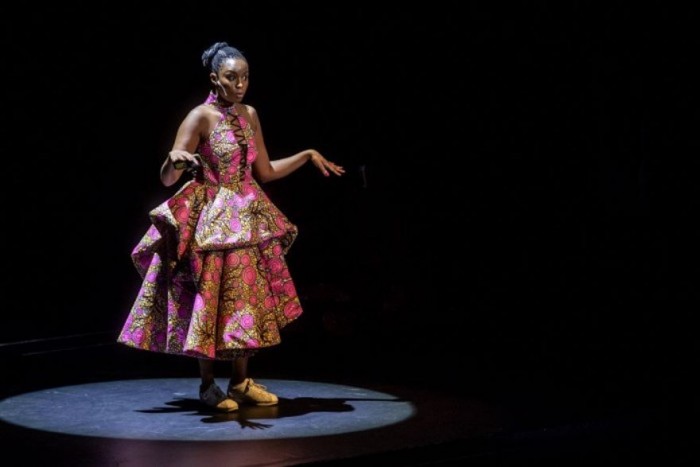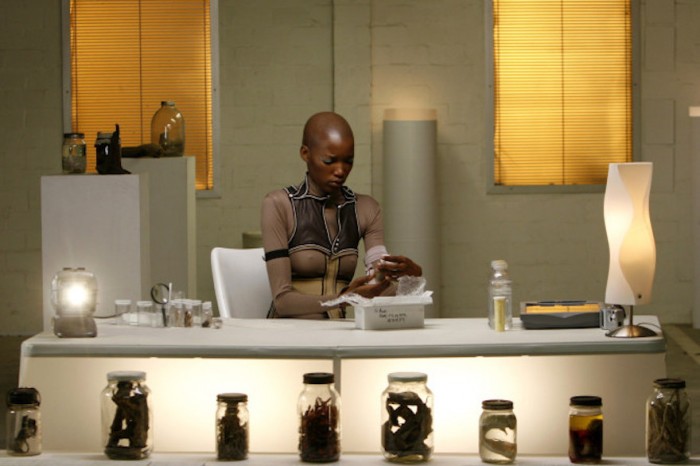“Growing up I hadn’t seen images of us as Africans falling in love. Europeans were falling in love, Americans were falling in love, everybody was falling in love but Africans were not. I really wanted to add our experience of being in love to cinema. So I made Rafiki.”
Rafiki is Design Indaba Conference 2019 speaker, Wanuri Kahiu's breakout film that has been screened in different parts of the world but remains banned in Kenya.
During her talk in February, Kahiu said that the Kenya Classification Board would only screen her movie if she promised to change the ending and make it less hopeful but more remorseful. She refused. The film was banned. And so began her journey looking into the history of art and creativity on the continent and how different people expressed joy through art and culture.
Ethiopia presented her with the work of a Somali-born artist called Xawaashking. The artist's work pays homage to his lineage, which is full of women who celebrated the experience and joy that comes with beauty every day.
Kahiu says: "One of the things that saved many Somali families during the civil war was that all the women wore all their gold on their bodies. So when they were fleeing, they were able to flee with their gold and retain the wealth of the family.”
She also learned about African comics that were a Pan African affair in their making and distribution. The comics, which were made between the 60s and 80s, were written in Nigeria, shot in Swaziland, edited in South Africa, and printed by Drum magazine for distribution in Kenya, Ghana and South Africa.
“And remember these were from the 60s to the 80s. So this was during apartheid, we were going through independence in Kenya. So, this was really a way of people imagining themselves as superheroes even though the everyday life did not necessarily show their superhero-ness.”
She also came across fantastical creatures like the ones she invited on stage including mermaids and dragons from places like Cameroon and Gambia.
In 2009 Kahiu made a hopeful ecological film called Pumzi that was partly inspired by the idea of a black woman being at the forefront when it comes to conservation. Women like the late Wangari Maathai.
She showed the audience a clip from Rafiki before asking that they, as creatives, need to do their bit to support artists so that artists can collect the data.
“The Kenya Classification Board were the reason my film was banned. The audience is the reason it doesn’t play in Kenya because people are not advocating for it.”
Since the film was only shown for seven days in Kenya she said it gave people the chance to see themselves on the big screen.
"While we talk a lot about representation and making sure that we’re seen, there’s nothing more poignant than someone coming to you and saying: ‘I saw myself. I felt seen. I felt acknowledged. I didn’t feel like I existed until I saw myself.’ It’s the same thing we have to do with joy. We have to see ourselves as people of joy.”
Scroll down to watch Wanuri's talk.









